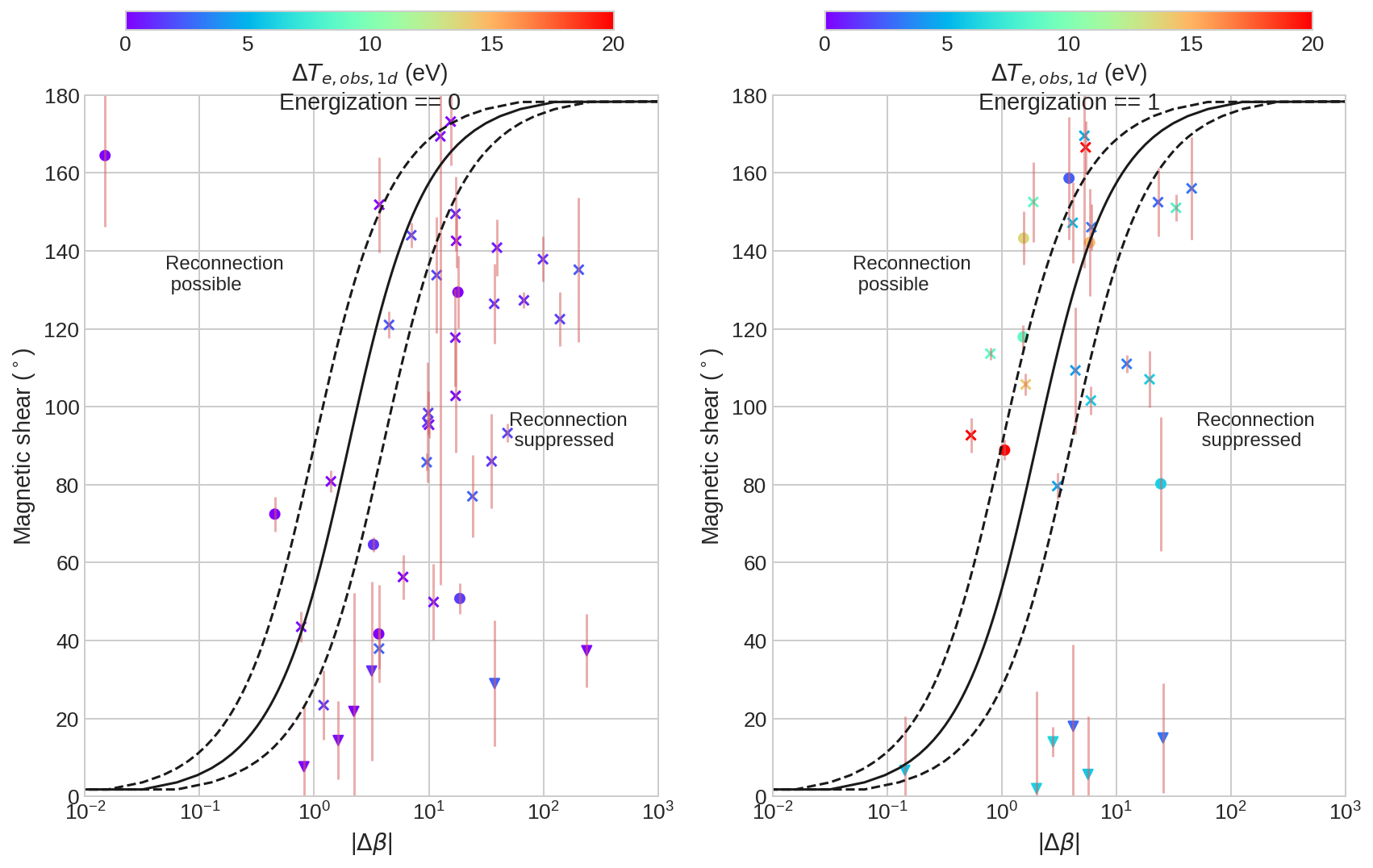MIST
Magnetosphere, Ionosphere and Solar-Terrestrial
Electron Bulk Heating At Saturn’s Magnetopause
By Matthew Cheng (University College London)
The magnetopause (MP) boundary is formed by the solar wind plasma flow interacting with a planetary magnetic field. Magnetic reconnection is an important process at this boundary as it energises plasma via release of magnetic energy. This process can lead to an “open” magnetosphere allowing solar wind and magnetosheath particles to directly enter the magnetosphere. At Saturn, the nature of MP reconnection remains unclear. Masters et al. (2012) hypothesised that viable reconnection under a large difference in plasma β across the MP also requires a high magnetic shear (i.e. magnetic fields either side of the boundary close to anti-parallel).
We used electron bulk heating (i.e. the scalar temperature change) at magnetopause crossings to test hypotheses about reconnection at open magnetopause locations, and the influence of magnetic shear and plasma β. The bulk temperature was determined using three different methods, related to properties of the observed energy distribution (including methods from Lewis et al. 2008). We compared the observed heating of magnetosheath electrons with the prediction based on reconnection, using the semi-empirical relationship proposed by Phan et al. (2013) which relates the degree of bulk electron heating to the inflow Alfven speed. Figure 1 shows that Δβ-magnetic shear parameter space discriminates well between events with evidence of energisation (right) and those without (left). Based on the magnetic shear measured locally by the spacecraft either side of the MP, we find 81% of events with no energisation were situated in the ‘reconnection suppressed’ regime, and up to 68% of events with energization lay in the ‘reconnection possible’ regime. These findings support the hypotheses that magnetic shear and plasma β play a role in the viability of magnetic reconnection.

Figure 1. Assessment of diamagnetic suppression of reconnection, overlaid with electron heating ΔTe. The left and right panels show events without and with evidence of energization respectively.
Please see the paper for full details:
, , , , , & (2021). Electron Bulk Heating at Saturn’s Magnetopause. Journal of Geophysical Research: Space Physics, 126, e2020JA028800. https://doi.org/10.1029/2020JA028800